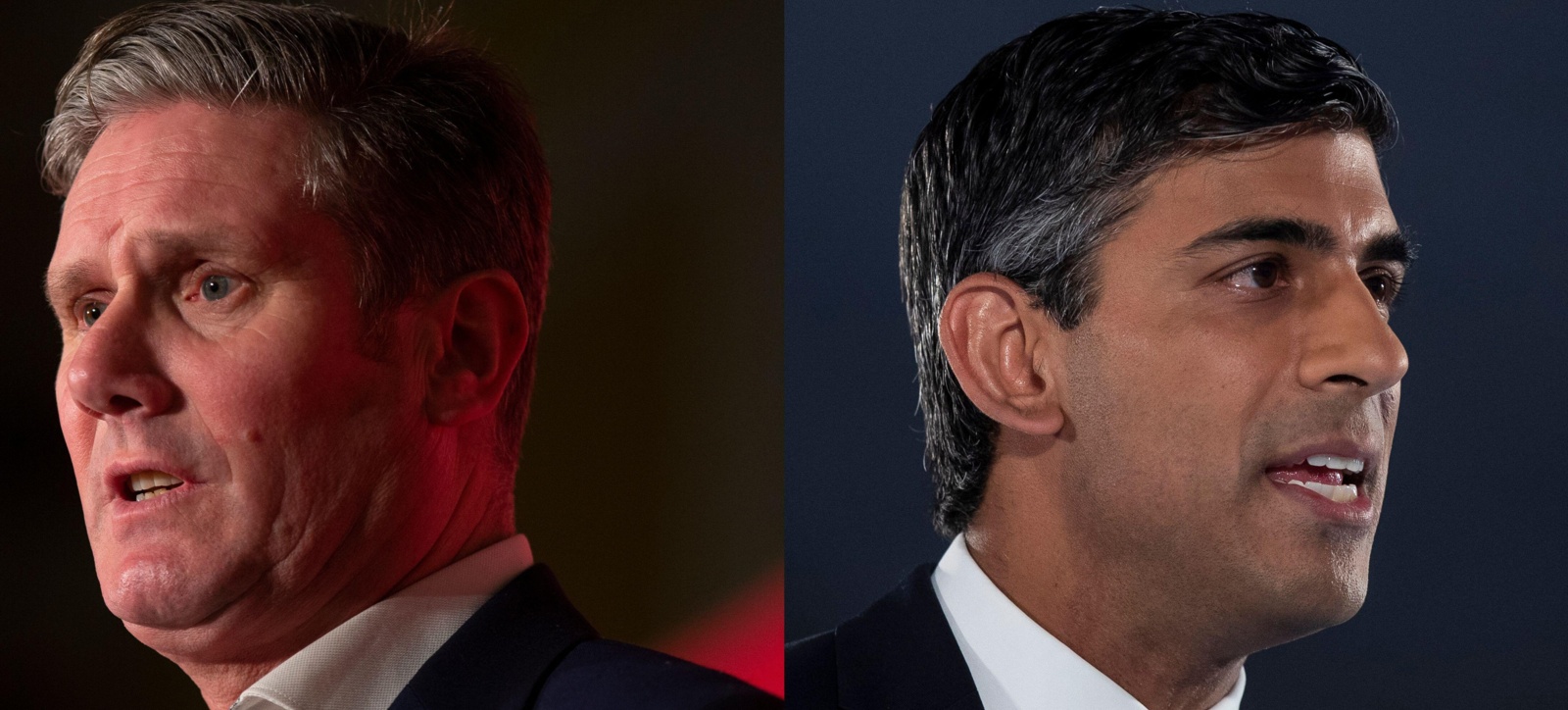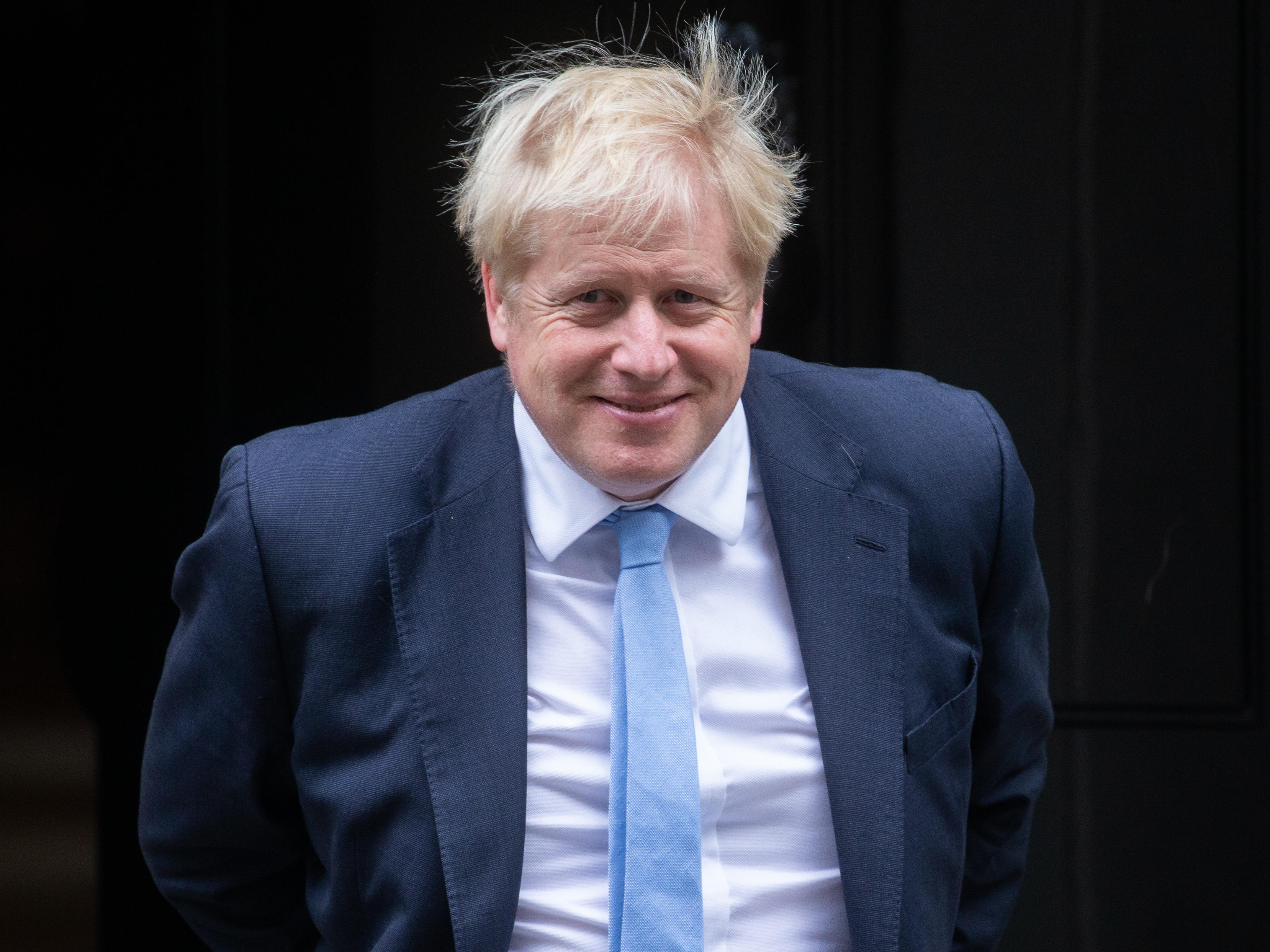
Grin it to win it: Kier Starmer and Rishi Sunak should master Boris Johnson's 'affiliative' smile, research suggests
Personality may not be everything in politics, but it goes a long way and that is the same for leaders of all organisations.
The looming UK General Election is shaping up as a battle between two managerial leaders who struggle to connect with the electorate on a personal level.
Voters face a choice between the courtroom and the boardroom. In the red corner is Keir Starmer, the Labour leader who rose to prominence as Director of Public Prosecutions.
In the blue corner is the current Prime Minister, Rishi Sunak. The former hedge fund director has not presided over the same level of chaos as his predecessor Boris Johnson, but nor does he have the charisma of the man who led the Conservatives to a landslide victory in 2019.
Recent research I conducted with a team of collaborators suggests that both party leaders would do well to focus on their personal appeal as the election approaches, particularly the way they smile. And this has lessons for all leaders.
The experimental research was conducted with Patrick Stewart, of the University of Arkansas, Erik Bucy, of Texas Tech University, and Carl Senior, of Aston University.
We analysed emotional responses to the leaders of the three major UK political parties during the week leading up to the General Election in December 2019.
A total of 546 potential voters took part in the research suggesting grins are hugely influential. All could be considered partisan, having declared a political preference for one party or another.
We asked participants to watch campaign footage of the three leaders – Boris Johnson, then-Labour leader Jeremy Corbyn, and Liberal Democrat leader Jo Swinson – and report how they felt in response to different smiles from each politician. Did they feel happiness, affinity, anger, or distress?
What are the benefits of smiling for leaders?
Not all smiles are equal. Some convey “affiliation” or a desire for social interaction. Others convey “reward” and indicate merely that the smiling individual is feeling happiness or satisfaction.
Affiliative smiles engage the main muscles typically used for smiling, such as the zygomaticus major, which pulls the corners of the mouth upward. However, they are rarely seen around the eyes.
They are commonly used prior to negotiations to show co-operative intent.

Reward smiles engage the same muscles as the affiliative equivalent, but also involve the orbicularis oculi, which produces wrinkles around the eyes.
This fosters an overall impression of softness, which is sometimes associated with empathy. When combined with the masseter, a muscle involved in chewing, and the depressor labii inferioris, which exposes the teeth, it may also result in a slight jaw drop.
These are often deemed more appropriate after a successful conclusion has been reached.
The emotions of each participant were measured in response to all three leaders as they displayed both affiliative and reward smiles. Ultimately, we wanted to know if the facial expressions of political leaders had any impact on political attitudes and decisions.
The study suggests smiling influences people
Our results showed that only one type of smile from one leader had any significant influence. That was the affiliative smile of Boris Johnson.
The former Prime Minister’s smile drove the highest level of positive response across the partisan divide.
In other words, it didn’t matter if you intended to vote for Johnson, Corbyn or Swinson. If you saw Johnson’s affiliative smile, you felt good.
The smiles of Corbyn and Swinson failed to generate a significant shift in participant emotion – as did Johnson’s reward smile.
These findings highlight the importance of considering the role of emotional responses in politics.
Social identity continues to have a major impact on how voters respond to political parties. However, the individual appeal of party leaders has become increasingly influential.
A smile can’t win an election on its own. But Johnson’s strength is Sunak and Starmer’s weakness.
His personality traits transcended party policies, connecting with people who hadn’t planned to vote for him and, in the end, the Conservatives went from a minority Government to a huge majority.
The role of body language in leadership
It is akin to the crossover appeal that helped Barack Obama, Bill Clinton, and Ronald Reagan to victory in the US Presidential Elections. That is precisely what Starmer and Sunak are striving for.
The dynamic between leaders and their followers could be decisive in the context of the next General Election if votes are up for grabs.
The upside for Sunak and Starmer is that charisma is not an innate quality. It is the type of human behaviour that can be taught.
By paying attention to their facial behaviour and ensuring they display the right smile in the right context, they can still leverage the power of emotional responses. It is something leaders of all organisations can learn if they are to convey influential and strong leadership.
In the event of a closely contested election, that could be enough to ensure they are the one grinning on their way into Downing Street. At the very least, their expressions of happiness could contribute to the scale of their victory.
This article was originally published on The Conversation.
Further reading:
How to prevent profits from tainting nudges that deliver a social purpose
Nick Lee is Professor of Marketing, Editor-in-Chief of The Journal of Personal Selling and Sales Management (JPSSM), and a Founding Fellow of the Institute for Sales Professionals. He was also part of the All Party Parliamentary Group inquiry into professional sales in 2019. He teaches Marketing on the Global Online MBA and Global Online MBA (London).
Learn more about Behavioural Science on the four-day Executive Education course Behavioural Science in the Real World at WBS London at The Shard.
For more articles on Leadership and Decision Making and Analytics sign up to the Core Insights Newsletter.




 X
X Facebook
Facebook LinkedIn
LinkedIn YouTube
YouTube Instagram
Instagram Tiktok
Tiktok